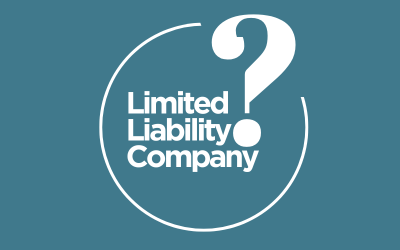If you’re considering incorporating your small business, read this first. This is not a decision to be taken lightly, so make sure you’re aware of what you need to know and do to run a corporation.
1. Where You Incorporate Matters
Many business owners think they should incorporate in a state like Nevada so they won’t have to pay state taxes, but the opposite is actually true. Whatever state you operate in, that’s the state that will require you to pay taxes on any sales that originate in your state. So there’s no getting around paying your state taxes simply by filing your incorporation paperwork in another state.
2. You’ll File Your Income Tax Like Always
If you set up an S Corporation, you’ll continue to pay your taxes on your personal income tax forms like you always have. An S Corporation is not taxed separate from its owners or shareholders, and corporate profits and losses are “passed-through” and reported on the personal income tax returns of the shareholders, much like a partnership.
3. Your Personal Assets Will Be Protected…Usually
One of the biggest reasons I see business owners decide to incorporate is to keep their personal assets separate from those of the business. And they will be…in most cases. However, if you personally guarantee a loan or use your personal credit card to pay for a business expense, you enter gray territory and your assets might be used to pay for any business debt your company can’t cover.
4. You Can Raise Capital, but May Have Restrictions
Depending on the type of corporation you choose, you may be able to raise funds for your business. With an S Corporation, there are limits to how many shareholders you can have, so check to see what those limits are before you work with any outside investors.
5. You’ll Need to Keep up With Annual Paperwork
A corporation is more structured than an LLC in that you have to submit your Annual Statement and/or Annual Report to remain compliant. It’s a slight bit of legwork, but it’s easy enough to stay on top of with CorpNet’s corporate Compliance Portal. We even send you a reminder when it’s time to file paperwork!
6. It’ll Help You Boost Your Business Credit
Once you incorporate, you will be able to take out business loans and credit cards in the corporation’s name. This helps separate your personal and business finances, and helps you begin to build credit under your business name.
7. Your Nonprofit Can Even Be a Corporation
If you run a nonprofit business for charitable, educational or other purposes, you may qualify for a nonprofit corporation. Nonprofits cannot benefit the owners: all money above operating costs must be used to further the goals of the nonprofit. All expenses are thus tax-free. Approval is needed at both at the State and Federal (IRS) level.
8. You’ll Probably Need to File Two Tax Returns the First Year
Unless your corporation gets approved January 1, you’ll likely have your first year as a corporation split between being a sole proprietor part of the year, and a corporation the rest. So you’ll have to file two tax returns for the two types of businesses. For example, if your corporation was formed on June 1, you’ll need to file as a sole proprietor (or whatever your previous entity may have been) from Jan. 1 – May 31 and then file as a corporation from June 1 – Dec. 31.
9. You Don’t Need a Lawyer to Incorporate
Contrary to what you might think, a lawyer is not required to incorporate. You can do it yourself, if you don’t mind a bit of paperwork and hoops to jump through, or you can let CorpNet take the reins and get back to focusing on your business.
10. Customers Will Take You More Seriously
It’s a subtle thing, but you might see more business as a result of incorporating it. Having that “Incorporated” at the end of your business name instills trust in people, and they’re more willing to spend money with you.
Still not sure if incorporating is right for your small business? Download our free Incorporation Guide for more information.





